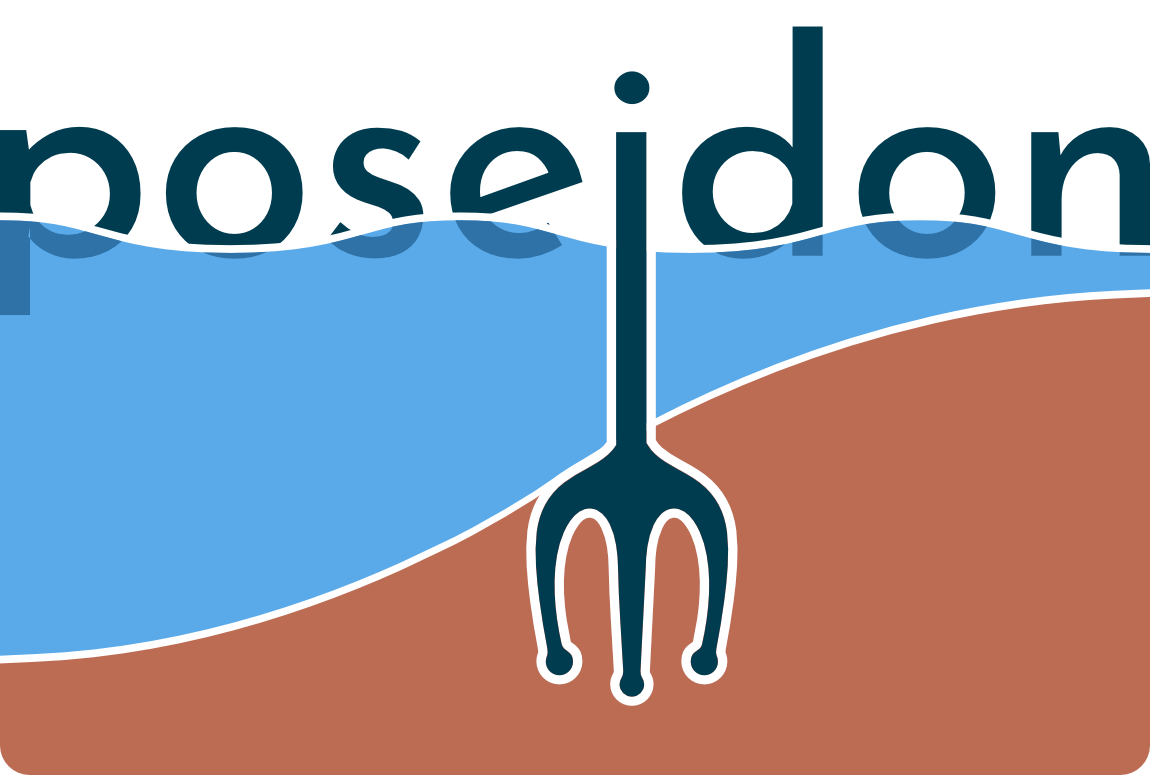POSEIDON brings together an interdisciplinary and intersectorial team to deliver a professionally trained next-generation network of Doctoral Candidates to develop a step change in our capacity to identify, map, assess and predict offshore geohazards and in turn produce ground-breaking methods to prevent, mitigate and boost the resilience of current offshore infrastructure under a changing climate. The consortium is formed by experts across EU countries with universities, research institutions, industry partners and a government body to cover a full training programme on scientific and transferable skills.
The Doctoral Candidates will enjoy a highly integrated training network coordinated by University of Twente, an interdisciplinary and intersector training environment, enriched through secondments with the network of academics and non-academics partners from Netherlands, United Kingdom, Germany, Norway, France, Denmark, and Italy.

The Aim of POSEIDON:
The programme will undertake critical research across scales (from micro to macro) for seeking the inner links and differences, with an eventual aim to ascertain the pathways and grow our capacity for the enhancement of the existing and the robust development of new offshore infrastructure in the frame of safety and resiliency. In addition to the informed design and implementation of the novel physical/numerical modelling and lab studies, our approach is unique in the solid integration and utilisation of state-of-the-art data science technologies (e.g., data mining, machine learning, etc.) to their full potential. Only through this systematic approach, we can achieve the objectives of understanding the impact of offshore geohazards on our offshore critical infrastructures (OCIs) and developing novel models, tools and designs for future OCIs, such as, wind turbines, pipelines and cables.
All these recent and urgent challenges in both maintaining the current OCIs and the design of the future OCIs have emphasised the need for the new generation of professionals to be equipped with interdisciplinary knowledge and skills at the interface between traditional engineering with data science.
Assessment and form of new designs for OCIs rely on sound science and engineering knowledge which requires the competencies to:
(i) integrate the big data,
(ii) develop fundamental constitutive models with advanced modelling methods,
(iii) assist with uncertain quantification methods and machine learning methods to improve the existing design approaches for these OCIs and form the quantitative risk assessment tools.
The Scientific Objectives of POSEIDON:
- Create a holistic geological understanding of submarine mass wasting events, particularly landslides, initiation (WP1, DC01 & DC02) [Marine geophysics, Sedimentology, Machine learning]
- Establish a microstructure-informed continuum model for describing the fluid-solid transition of sediments, based on a fundamental understanding of hydrodynamic interactions with sediment particles in both stagnant and free-flowing regimes, via the combination of Bayesian learning and advanced micromechanical lab testing and numerical simulation methods (WP2; DC03 & DC04 & DC05 & DC11) [Computational modelling, Geotechnics]
- Develop hybrid numerical models and tools for only precisely simulating the entire process of submarine landslides and assessing the impact forces on surrounding OCIs but also efficiently predicting the propagation of induced tsunamis in a large-scale area (WP3; DC06 & DC07) [Offshore technology, Tsunami research]
- Develop pathways to transform new resilience and uncertainty models into data-driven monitoring, maintenance, and design solutions for existing and future OCIs (WP4; DC08 & DC09 & DC10 & DC12) [Hazard assessment, Offshore technology, Machine learning, Data mining]
- Assess the economic impact of offshore threats on the offshore infrastructure system and provide guidance to investment and policy (WP4; DC08 & DC09 & DC10 & DC13) [Hazard assessment, Governance]
- Develop awareness training programmes to improve public knowledge of offshore hazards risks and offshore infrastructure sustainable development (WP5, WP6, WP7; All) [Social, Economic]



